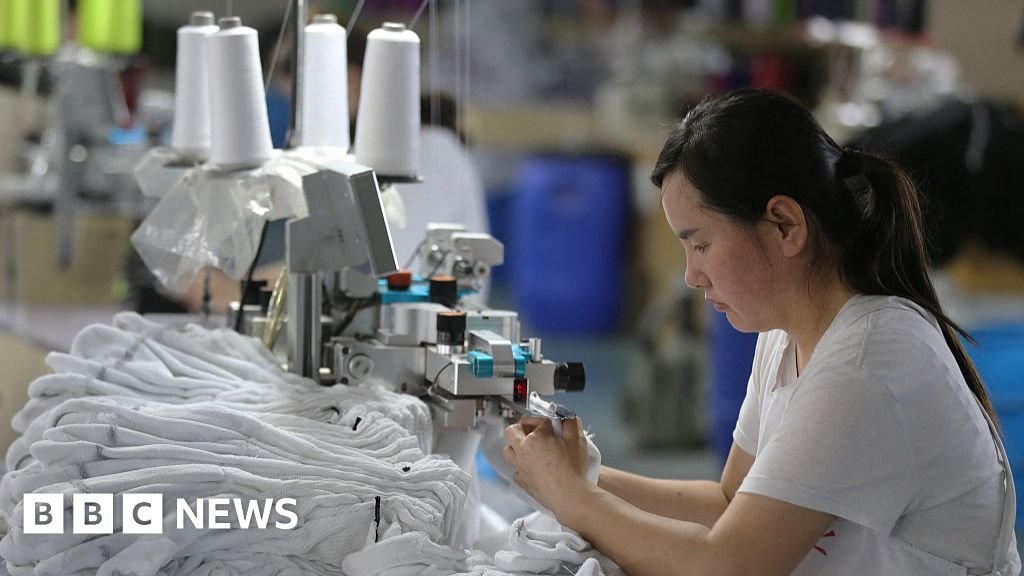A confluence of economic and social factors is driving higher job applications from women in Europe.
In a tough job market and tumultuous global economy, women are searching for jobs in droves. In some places across the world, female jobseekers outnumber their male counterparts.
A March 2024 report from global recruitment-software platform iCIMS shows that compared to North America, more women were applying to jobs in EMEA (Europe, Middle East and Africa). The analysis, which considered more than 200 million applications in 2023, showed 52% of EMEA-based applicants were women, versus 50% in North America.
It's a statically small difference – but it tells an important story about the global job market and economy. "While this discrepancy appears to be minimal, when thinking of the number of jobs in [North America], we're missing a large number of female applications," says Rhea Moss, global head of workforce and customer insights at iCIMS.
Specifically, in Western Europe, Moss says the higher volume of female applications is born out of a combination of factors, from social norms to economic policy.
Differing attitudes towards workplace gender balance across the globe is one driver. "Over the years, European employers have recognised the importance of closing their workplace gender gaps and implementing initiatives that focus on equalising the playing field, which has encouraged more women to apply for jobs," says Moss. In the past few years, for example, countries including Spain and Finland have introduced equal parental leave for men and women; while in the Netherlands, daytime childcare is widely available.
The overarching biggest factor, however, is the state of the global economy. In Europe, cost of living is rising faster than in North America, so more women are starting or returning to work as a means of surviving financially. "In Europe, it has become really hard to support a family on one income," says Khadija van der Straaten, an assistant professor at Rotterdam School of Management, who studies gender in international business across countries.
Across most of the continent, more women are also working in general. In the US, for example, labour market participation for women is around 56%, whereas in France it is 78%. The European job market, too, is less stable than North America's, explains Van der Straaten – a difference that's playing a big part in more women applying in Europe. "Female unemployment in the US is 3.6%, but between 7% and 7.5% in continental Europe." Put simply, in Europe, there are more women in the job market looking for jobs.
More like this:
Population demographics are also impacting how many Western European women are seeking work: the ageing workforce needs every participant they can get. "There is a structural necessity for women to participate in the workforce due to the ageing population," says Van der Straaten. Many European governments are making it easier for younger women to enter the workforce with increasingly strong maternity and childcare support programmes. The need is more urgent than it is in North America, where the population isn't ageing as fast.
Van der Straaten believes these factors will continue to drive more women in Europe into the workforce throughout the next 10 to 20 years. Of course, economic situations and cultural attitudes are harder to predict, yet the experts believe this pattern will prevail, at least for now.
—
If you liked this story, sign up for The Essential List newsletter – a handpicked selection of features, videos and can't-miss news delivered to your inbox every Friday.
The BBC's Katty Kay has spoken to successful change-makers to ask what made them pivot in their career.
Today, the beer industry is male-dominated, but it wasn't always so.
Expert advice on how to get through a waiting period.
A career coach, a choreographer, a chef and a dragon boat captain offer advice on giving critical feedback.
These are the long lost words you've been waiting for to describe your colleagues.
Veterinarian professionals are committing suicide at a higher rate than the general population.
We meet the creators behind the current ASMR boom.
From a shipwrecking yard in Bangladesh to a river of iron dioxide in Canada, a deep dive in Ed Burtynsky's work.
It takes three years for an otter cub to master the complexities of a successful hunt.
The Travel Show sets off on a journey to celebrate an instantly recognisable travel icon, the VW campervan.
A weekly summary of the big stories from financial markets around the world.
'Off-Map Destination' winner Wolfgat offers a menu made from hyper-local and foraged ingredients.
Tech sector venture capitalist says the global economic uncertainty will mean less investment for private equity.
Tech Now visits Zambia to see how Bitcoin is helping to provide villagers with electricity.
BBC's Tom Brook explores never-before-seen footage and shares his personal connection with the new documentary.
Black holes are one of the mysteries of the universe where all the laws of nature as we know them stop working.
Watch as weaverbirds build intricate nests along the Blue Nile to attract a mate.
It's Microsoft's 50th anniversary and BBC technology editor Zoe Kleinman tours its Redmond headuarters.
Expert says it is unclear whether there is room for tariff negotiation between the US and other countries.
Dancer and choreographer Lee Serle talks about embracing uncertainty and never stopping, no matter the setbacks.
Once emptied of wildlife, South Africa's Babanango Game Reserve is now home to the Big Five – thanks to a bold rewilding project led by Zulu communities and global conservationists.
Seventy years old this year, Henri-Georges Clouzot's Les Diaboliques is a masterclass in macabre dread – and inspired Hitchcock's classic among others.
Your reaction times can reveal a surprising amount about what's going on inside your body, from your brain health to your risk of an early death.
The sweltering heat during Buddhist New Year calls for Thailand's cooling khao chae, a fragrant and refreshing bowl of rice delicately scented with flowers.
Twelve suspects were put on trial in April 1964. More than a decade later, several of them talked to the BBC about the notorious heist.
Copyright 2025 BBC. All rights reserved. The BBC is not responsible for the content of external sites. Read about our approach to external linking.
More women are applying for jobs in Europe than North America. Why? – BBC



